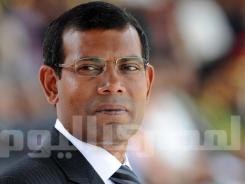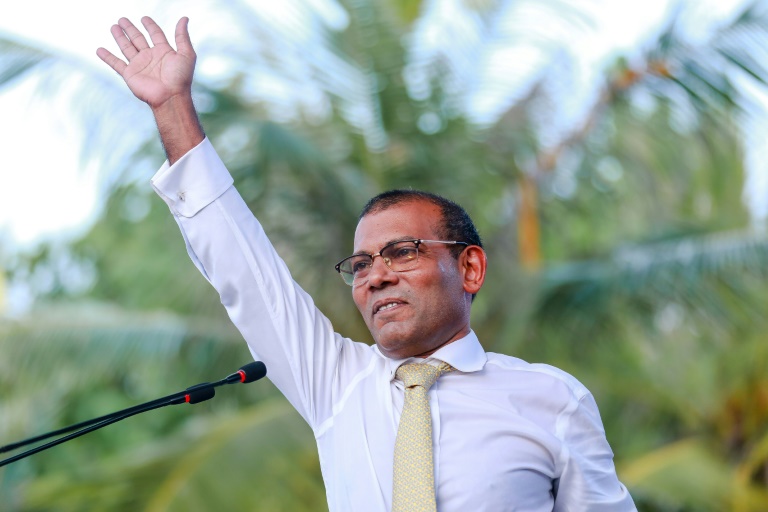
MALE, Maldives — The new president of the Maldives called Wednesday for the formation of a national unity government in his Indian Ocean nation even as police and soldiers kept watch over his predecessor at an undisclosed location.
President Mohammed Waheed Hassan, the former vice president, was sworn in Tuesday when Mohamed Nasheed resigned after police joined widening street protests against his government.
Addressing a news conference Wednesday, Hassan denied claims he was behind a plot to oust Nasheed. He said he had not prepared to take over the country and he called for the creation of a unity coalition.
"Together, I am confident, we'll be able to build a stable and democratic country," he said, adding that his government intended to respect the rule of law.
Hassan, who had promised to protect Nasheed from retribution, said his predecessor was not under any restriction and was free to leave the country. However, he said he would not interfere with any police or court action against Nasheed.
Police were investigating the discovery of at least 100 bottles of alcohol inside a truck removing garbage Tuesday from the presidential residence as Nasheed prepared to relinquish power, said police spokesperson Ahmed Shyam. Consuming alcohol outside tourist resorts is a crime in this Muslim nation. If charged and convicted of possession of alcohol, Nasheed could be sent to jail for three years, banished to a distant island, placed under house arrest or fined.
Authorities said Nasheed was under police and army watch at an undisclosed location Wednesday, but denied he was under house arrest.
"Mr. Nasheed is protected by the current government because there might be some people wanting to harm him," Shyam said. "He's in a safe place now, but any other action will be decided by the government."
Amnesty International's Asia-Pacific director Sam Zarifi called on the new government not to seek retribution against Nasheed and said "his exact whereabouts must be clarified immediately."
Nasheed, the country's first democratically elected president, presented his resignation in a nationally televised address after police joined demonstrators protesting his decision to arrest a top judge and then clashed with soldiers in the streets. Some of the soldiers then defected to the police side.
Nasheed's Maldivian Democratic Party insisted his ouster was a "coup" engineered by rogue elements of the police and supporters of the country's former autocratic leader. Others blamed Islamic extremists.
Hassan's office denied the military pressured Nasheed to quit, and an adviser to the former president said he had not resigned under duress, but to prevent further violence in the street.
Hassan sought to tamp down fears that Islamists were gaining power in the country.
"They are part of the society; you can't ignore them," he said. "But there are wide range of people with different views, philosophies and ideas about politics. I am planning to create a plural multiparty government."
He also worked to reassure the vital tourism industry that the country, known for its stunning beaches and lavish resorts, remained a peaceful place to visit.
UN Secretary General Ban Ki-moon said in a statement he hoped Nasheed's resignation would lead to a peaceful resolution of the political crisis. He called on all Maldivians to cement the nation's democratic gains.
UN Assistant Secretary General Oscar Fernandez-Taranco is scheduled to lead a UN team to the country later this week to help the Maldives resolve its political tensions.
Nasheed's resignation marked a stunning fall for the former human rights campaigner who defeated the nation's longtime ruler, Maumoon Abdul Gayoom, in the country's first multiparty elections. Nasheed was also an environmental celebrity calling for global action to combat the climate change that could raise sea levels and inundate his archipelago nation.
In a phone call with US officials, Hassan expressed his strong commitment to a peaceful transition of power and the preservation of democracy.
Hassan Saeed, a former attorney general and Nasheed ally, hoped that Nasheed's resignation ends political bickering that has become a hallmark since the country became a multiparty democracy in 2008.
"I am happy that the rule of law and justice prevailed," he said.
Over the past year, Nasheed was battered by protests over soaring prices and demands for more religiously conservative policies.


